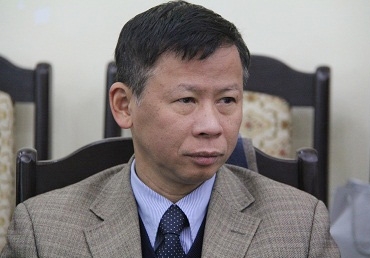New model funds agro boost
 Is the PPP model really a key to boosting foreign direct investment (FDI) in Vietnam’s agricultural sector, which presently makes up a tiny share of the nation’s FDI pie?
Is the PPP model really a key to boosting foreign direct investment (FDI) in Vietnam’s agricultural sector, which presently makes up a tiny share of the nation’s FDI pie?
Generally speaking, investments in the agricultural sector have been very little for a long time. FDI in agriculture is inconsiderable, accounting for only 1-3 per cent of Vietnam’s total registered FDI. PPP model applied in agriculture is one of the most efficient methods to raise FDI inflows to the sector. In other countries, PPP is very successful in attracting investments from all economic sectors, particularly the private sector, in areas which are encouraged for development by the governments, including agriculture. Vietnam has obvious comparable advantages in agriculture.
Trans-national groups and international organisations have grasped these advantages, especially during the current period of economic difficulties, and many investors have been shifting their capital from the real estate sector and basic construction to the agricultural sector. They acknowledged that agriculture was a very promising sector, prices of farming products would be very high for many years to come so investing in agriculture in a country with a lot of agricultural advantages like Vietnam was a big opportunity. Trials of the PPP model during the past two years have brought about significant results for Vietnam’s agricultural sector in particular and for rural economy in general.
Could you specify some results of the pilot PPP model in Vietnam’s agricultural sector?
The pilot PPP model between the Ministry of Agriculture and Rural Development (MARD) and multinational groups such as Unilever, Nestle, PepsiCo and Metro Cash & Carry over the past two years has shown encouraging results.
For example, the coffee output reaching rainforest standards has increased by two to three times. These standards are being applied by Unilever – the world’s biggest tea procurement firm. This company does not only work with farmers and existing processing factories but will also start building its own processing factories in Vietnam. The coffee sector also thrives with strong coffee trademarks. These sectors have gained breakthroughs. In addition, the seafood sector is another example. Metro Cash & Carry has started connecting farmers in building seafood trademarks and setting up a seafood procurement and processing centre in the Mekong Delta’s Can Tho city.
Also, in other farming products such as potatoes, the PPP model has done a lot of trials on new varieties of potatoes. Grape and soybean outputs are also targeted to double in the future. These efforts by trans-national companies are in line with orientations of Vietnam’s agricultural sector and the thing that we take the most interest in is how to keep these efforts in line with benefits to farmers and domestic businesses. To reach this, it requires support and participation of all economic sectors and foremost, we need a sound policy from the government. Currently, most of these pilot projects have been of small scale.
Vietnam has been in the World Economic Forum’s initiative on new agricultural vision for just two years but when making presentations at the forum in Davos, Vietnam’s PPP efforts attracted the attention of many other nations such as Indonesia, Thailand and African countries. They took much interest and wanted to learn from Vietnam.
What difficulties exist in the pilot PPP model in Vietnam’s agricultural sector?
Many countries have laws on PPP, but Vietnam just has relevant documents in infrastructure. In agriculture, private investment is currently very low and FDI is inconsiderable. Therefore, mobilising investments for PPP projects in agriculture is getting more difficult.
In addition, agricultural production activities in Vietnam are mostly of very small scale. We have 10 million farming households, each has an average 0.6 hectare of cultivated land.
With such a micro scale production, outdated technology, poor infrastructure and modest rural credit access, it will surely take time to put Vietnam into the global chain with a strong trademark as well as build an economy of goods with high added value.
What the stars mean:
★ Poor ★ ★ Promising ★★★ Good ★★★★ Very good ★★★★★ Exceptional
Latest News
More News
- Hermes joins Long Thanh cargo terminal development (February 04, 2026 | 15:59)
- SCG enhances production and distribution in Vietnam (February 04, 2026 | 08:00)
- UNIVACCO strengthens Asia expansion with Vietnam facility (February 03, 2026 | 08:00)
- Cai Mep Ha Port project wins approval with $1.95bn investment (February 02, 2026 | 16:17)
- Repositioning Vietnam in Asia’s manufacturing race (February 02, 2026 | 16:00)
- Manufacturing growth remains solid in early 2026 (February 02, 2026 | 15:28)
- Navigating venture capital trends across the continent (February 02, 2026 | 14:00)
- Motivations to achieve high growth (February 02, 2026 | 11:00)
- Capacity and regulations among British areas of expertise in IFCs (February 02, 2026 | 09:09)
- Transition underway in German investment across Vietnam (February 02, 2026 | 08:00)
















 Mobile Version
Mobile Version